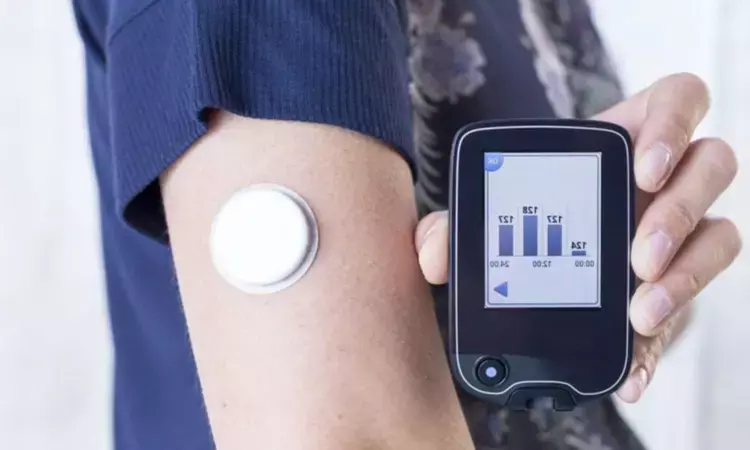- Home
- Medical news & Guidelines
- Anesthesiology
- Cardiology and CTVS
- Critical Care
- Dentistry
- Dermatology
- Diabetes and Endocrinology
- ENT
- Gastroenterology
- Medicine
- Nephrology
- Neurology
- Obstretics-Gynaecology
- Oncology
- Ophthalmology
- Orthopaedics
- Pediatrics-Neonatology
- Psychiatry
- Pulmonology
- Radiology
- Surgery
- Urology
- Laboratory Medicine
- Diet
- Nursing
- Paramedical
- Physiotherapy
- Health news
- Fact Check
- Bone Health Fact Check
- Brain Health Fact Check
- Cancer Related Fact Check
- Child Care Fact Check
- Dental and oral health fact check
- Diabetes and metabolic health fact check
- Diet and Nutrition Fact Check
- Eye and ENT Care Fact Check
- Fitness fact check
- Gut health fact check
- Heart health fact check
- Kidney health fact check
- Medical education fact check
- Men's health fact check
- Respiratory fact check
- Skin and hair care fact check
- Vaccine and Immunization fact check
- Women's health fact check
- AYUSH
- State News
- Andaman and Nicobar Islands
- Andhra Pradesh
- Arunachal Pradesh
- Assam
- Bihar
- Chandigarh
- Chattisgarh
- Dadra and Nagar Haveli
- Daman and Diu
- Delhi
- Goa
- Gujarat
- Haryana
- Himachal Pradesh
- Jammu & Kashmir
- Jharkhand
- Karnataka
- Kerala
- Ladakh
- Lakshadweep
- Madhya Pradesh
- Maharashtra
- Manipur
- Meghalaya
- Mizoram
- Nagaland
- Odisha
- Puducherry
- Punjab
- Rajasthan
- Sikkim
- Tamil Nadu
- Telangana
- Tripura
- Uttar Pradesh
- Uttrakhand
- West Bengal
- Medical Education
- Industry
Flash glucose monitoring system significantly improves glycemic control in women with gestational diabetes

Poland: Flash glucose monitoring (FGM) affects dietary habits, glycaemic control, and the incidence of fetal macrosomia in patients with gestational diabetes mellitus (GDM), findings from the FLAMINGO randomized trial have shown. Results from the randomized controlled trial were published online in Acta Diabetologica on 10 May 2023.
The researchers reported that FGM application significantly improved glycemic control in the 3rd and 4th weeks of the study. FGM led to higher EAT (Eating Assessment Test) scores, indicating better diet modifications following GDM diagnosis; however, it did not impact lifestyle interventions, including qualification for insulin therapy, gestational weight gain, or insulin dosage. FGM significantly decreased the incidence of fetal macrosomia but had no significant impact on neonatal hypoglycaemia incidence or birthweight percentile.
In pregnant women, gestational diabetes mellitus is the most common type of hyperglycaemia. GDM is a risk factor for poor perinatal outcomes, including neonatal hypoglycaemia, fetal macrosomia, and shoulder dystocia, and its incidence rate increases proportionally to the level of maternal dysglycaemia. Therefore, glycemic control has a vital role to play in GDM management.
There are several options for glycemic control, with SMBG (self-monitoring of blood glucose) being the most common and standard for pregnant women. However, in recent years new methods have been introduced, namely CGM (continuous glucose monitoring systems), which include flash glucose monitoring and real-time continuous glucose monitoring. There is no clarity on whether these systems impact perinatal outcomes, such as the incidence of neonatal hypoglycaemia or fetal macrosomia in this population.
Agata Majewska, Medical University of Warsaw, Warsaw, Poland, and colleagues aimed to evaluate the efficacy of flash glucose monitoring in gestational diabetes.
The study recruited 100 pregnant women diagnosed with GDM between 24 and 28 gestation weeks at the Medical University of Warsaw. Patients who met the inclusion criteria were randomly assigned to the study group (FGM, n = 50) or control group (SMBG, n = 50). Laboratory and clinical results were assessed at four follow-up visits.
The study's primary outcome was mean fasting and postprandial glycaemia. The secondary outcomes were perinatal outcomes.
The study led to the following findings:
- Between the groups, there was no significant difference in mean glycaemia.
- Compared to the control group, the study group remarkably reduced their fasting and postprandial glycaemia during the first four weeks after GDM diagnosis, with no significant difference in progression to insulin therapy (OR 1.09).
- The incidence of fetal macrosomia was significantly higher in SMBG than in the FGM group (OR 5.63).
"The results indicate that flash glucose monitoring impacts dietary habits, glycaemic control, and incidence of fetal macrosomia in patients with gestational diabetes," the researchers concluded.
Reference:
Majewska, A., Stanirowski, P.J., Tatur, J. et al. Flash glucose monitoring in gestational diabetes mellitus (FLAMINGO): a randomized controlled trial. Acta Diabetol (2023). https://doi.org/10.1007/s00592-023-02091-2
Dr Kamal Kant Kohli-MBBS, DTCD- a chest specialist with more than 30 years of practice and a flair for writing clinical articles, Dr Kamal Kant Kohli joined Medical Dialogues as a Chief Editor of Medical News. Besides writing articles, as an editor, he proofreads and verifies all the medical content published on Medical Dialogues including those coming from journals, studies,medical conferences,guidelines etc. Email: drkohli@medicaldialogues.in. Contact no. 011-43720751


